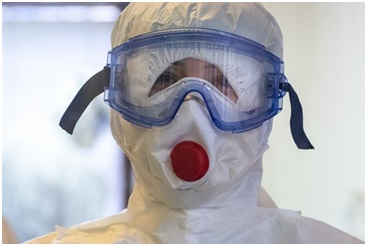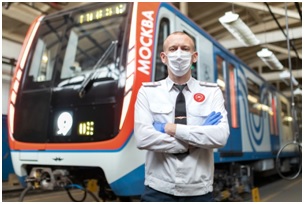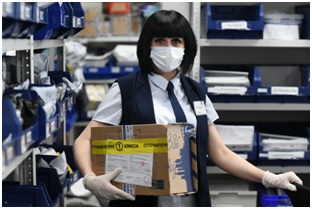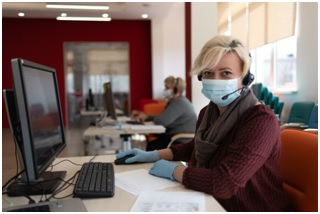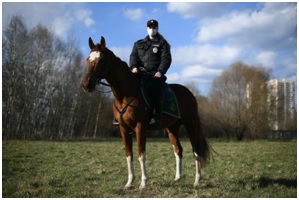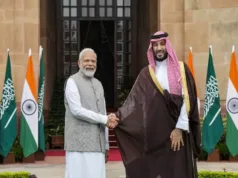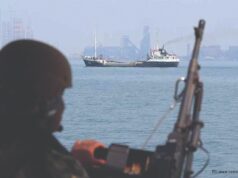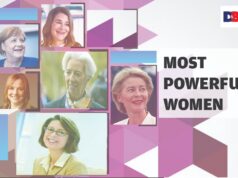Russia stands firm against inhumane practices that are unacceptable during global cataclysms. During the emergency summit of the Group of Twenty on March 26, 2020, President Vladimir Putin voiced the initiative to create “green corridors” free of trade wars and sanctions for mutual deliveries of medicines, foods, equipment, and technologie
The rapid spread of the novel coronavirus changed life on the planet virtually overnight. It also became a crush test for international relations, both at the level of individual countries and multilateral associations. The obvious consequences include an economic recession, a crisis of global governance and the growth of protectionist and isolationist sentiments. The pandemic has seriously limited humanitarian, cultural and tourist exchanges, as well as people to people contacts. But this is only the tip of the iceberg.
We must acknowledge that the pandemic has revealed a lack of humanity in some cases. We are witnessing that, instead of consolidating the efforts and aspiring to mutual understanding, those who are used to declaring – or declaiming – their moral leadership and rich democratic traditions, are abandoning the rules of decorum and ethical restrictions and beginning to follow the law of the jungle. For instance, there are attempts to pin the blame for the spread of the infection on China, or sketchy speculations about Russia’s assistance to some countries provided at the request of their governments. It even came to absurd accusations against Russia of trying to use the humanitarian and medical assistance to “increase its geopolitical influence,” or humiliating bans – in violation of the basic diplomatic norms – on asking Russia for medical and humanitarian aid regardless of the severity of the situation.
Russia stands firm against inhumane practices that are unacceptable during global cataclysms. During the emergency summit of the Group of Twenty on March 26, 2020, President Vladimir Putin voiced the initiative to create “green corridors” free of trade wars and sanctions for mutual deliveries of medicines, foods, equipment, and technologies. Moscow welcomed and supported the statement by the UN Secretary-General Antonio Guterres, who urged the parties to regional armed conflicts to promptly stop combat operations and introduce a ceasefire. Of course, any ceasefire should not be used to exempt terrorist groups that are considered as such by the UN Security Council from responsibility.
During the past week, the number of people infected with the COVID-19 in the world exceeded 6.5 million people. A relative slowdown in the overall trend of those infected has been recorded (the increase in confirmed cases over the past
24 hours was approximately 1 percent). Nevertheless, the overall pandemic situation in various regions is still characterised as ambiguous. A serious outbreak in Latin America and developments in Africa are alarming.The epidemiological situation in the EU countries looked noticeably more favourable. This allows the national authorities to lift quarantine restrictions step-by-step, to relax the border barriers, and to work closely on “relaunching” the economy.Under today’s conditions of the world community’s joint efforts to battle this dangerous global challenge, it is extremely important to coordinate actions not only at the state and government levels, but also within relevant multilateral agencies.
In countering the spread of COVID-19, Russia actively cooperates with its partners worldwide, including India. Earlier the Government of the Russian Federation allocated $1 million to the World Health Organisation.The overall level of Russian contribution to the fight against COVID-19 through international organisations is estimated at more than $30 million.
Moreover, work is ongoing to evacuate our citizens from abroad. Starting from March 20 up to June 7, 2020 over 190 thousand of Russian citizens returned home, including from India. We keep expanding the evacuation geography and adjusting the algorithm to actual conditions. In the past weeks, Russian citizens have come back from Bangkok, Dushanbe, New York, Miami, Bishkek, Seoul, Madrid, Guangzhou, Hong Kong, New Delhi, and Goa.
As of June 8, the number of new cases across Russia has not been over 2 percent for six consecutive days (total is 485 000 cases with 242 000 recovered and
6 000 demised). As for Moscow, the city that faced this problem first and has the largest number of COVID-19 cases, the growth rate is below the national average at only 1 percent.
There have been positive developments if we look at the range of other indicators, including the scope of testing. Almost 12.5 million tests have been conducted. It is noteworthy that Russia has registered 40 different test kits and more than half of them were developed in this country.Moreover, Russia is developing six types of vaccines against the novel coronavirus (COVID-19), which are expected to be approved and confirmed as safe soon.
Given improvements of the situation, Russian government started to remove restrictions step by step. Back in March, it restricted entry to Russia for foreign nationals and foreign travel for the majority of Russians, to prevent the spread of the coronavirus. Recently a Government resolution has been signed that will enable Russian citizens to travel abroad to take care of their sick relatives who live in other countries, or travel for study and work. Russians who require medical treatment in a foreign country will also be allowed to travel. Meanwhile, entering Russia will only be allowed for foreign nationals who are to undergo treatment at a Russian medical institution. Single entry will be permitted for those who have close relatives, legal guardians, or caregivers here in need of personal care.
Russian people are proud of those who made it possible to successfully combat
the COVID-19 inside the country.Interestingly, the coronavirus pandemic has divided mankind into those who must stay at home to survive, and those who have never stopped going to work and are taking risks every day. Dairy farm workers, delivery men, couriers, traffic police officers, bank workers, volunteers, pharmacists, taxi drivers, traders, cashiers, petrol station workers, and of course, doctors. Please, have a look at some photos of them from the special project by Rossiya Segodnya International Information Agency (Sputnik).
Worker at the Sklifosovsky Research Institute of Emergency Medicine.
PhotobyVladimirPesnya
Stanislav Alekseyev, Yandex. Food delivery man.
PhotobyYevgenyBiyatov
Nikolai Petrov, Moscow Metro driver.
Photo by the Moscow Metro press service
Marina Mashkova, Head of Russian Post office No. 115088.
PhotobyAlexeiMaishev
Svetlana Kosareva, operator, help center for senior citizens.
PhotobyGrigorySysoyev
Maria Selyutina, mounted police officer.
PhotobyRamilSitdikov


